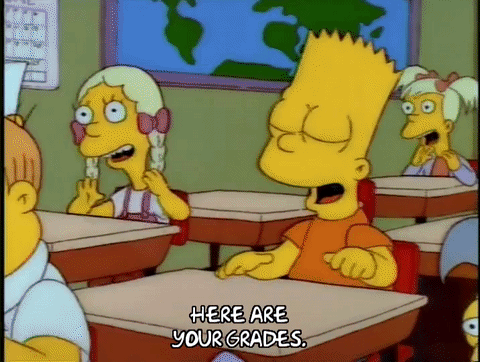What to do if you don’t get the grades you need
By zcbepma, on 30 August 2018
For everyone who has received their A level or GCSE results over the last couple of weeks student writer Priya has some advice if you didn’t quite achieve the grades that you expected.
So the summer holidays have raced by and A level and GCSE results days have been and gone.
You may have been trying to put results day out of your mind. It can cast a big shadow over what otherwise can be a carefree and relaxing few months. Inevitably it will be smiles for some and for others disappointment.
So… what should you do if you’re in the unfortunate position of not achieving the results you expected.
Don’t panic about your grades

First things first – DO NOT PANIC. Remember to stay calm and keep a cool head. This will give you the best chance of making good and solid decisions. I know it is easier said than done but trust me this is the best thing for you.
Not receiving the grades you hoped you’d get can be the most devastating feeling in the world, trust me – I’ve been there and whilst I cant promise you that you’ll wake up feeling fantastic the next morning or even in a months time I can tell you that there’s always a back up plan and the back up plan normally sorts you out!
Don’t clam up
It is a very human response to crawl into your shell when things don’t go to plan. Self-criticism can be super destructive and because of this it can be important to talk to someone about how you are feeling. Everybody has their bad days and no one will look at you any differently whatever grades you achieve. If you are not able to talk to your parents or carers then think about talking to one of your close relatives or friends, even a careers adviser is a good person to talk to who can always offer some friendly advice.
UCAS also offers lots of advice on their website: https://www.ucas.com/contact-us
Consider your Plan B

Right. So we’ve established that your initial plan hasn’t quite worked out. Super frustrating. Lets not waste time though, lets think about your plan B….
Even if you’re not completely set on another option or even if you only have a super vague idea of what you want to do, now would be a fantastic time to look into alternative options.
If you’ve not done as well in your GCSEs in a subject that you planned taking at A level then you could always reconsider what you are good at and take the subjects you’re obviously enjoying and progressing in.
If you’ve missed out on grades that are essential to get into your firm or insurance choice universities then think about going through Clearing. Remember Clearing isn’t the only option for students who have got different grades than they were predicted, sometimes if you’ve done better and you want to see if you can switch university – there are some really good courses available via Adjustment too.
Yes it can be hard receiving disappointing grades especially after you’ve worked so hard for them, but trust me you’ll be able to get past it. Missing your grades doesn’t mean that you’re a failure and doesn’t mean you won’t ever be able to achieve and have a great career. Look for the silver lining and soon with some courage, determination and a positive outlook you’ll still be on track to a bright and fulfilling future!
A word from the writer:
Hi my name is Priya! I study Biochemical Engineering – My area of expertise is in Bioprocessing of New Medicine with Business and Management. I am currently a 2nd Dan Black Belt ITF Tae-kwon-do Instructor. I like to regularly train at UCL but also love to teach at my local club.
 Close
Close




